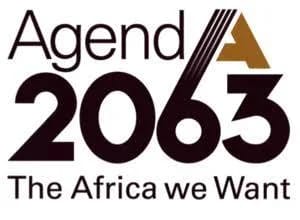
There is an urgent need to address between $6.7 trillion and $22.6 trillion water investment gap between 2030 and 2050 for climate-resilient water infrastructure globally.
With Africa mobilising just $10-19 billion annually against its $30 billion target for water infrastructure, the need for innovative financing models and public-private-philanthropic partnerships to bridge the gap have become even more urgent.
Against this backdrop, and within the context of its G20 presidency, South Africa this month hosted the AU-AIP Africa water investment summit to mobilise climate-resilient water and sanitation investments that advance water security, economic growth and sustainable development on the continent.
The United Arab Emirates (UAE) in partnership with Senegal will bring together heads of states, ministers, development finance institutions, private investors, project developers and civil society representatives to the water summit from convened in Cape Town from August 13-15, 2026.
The 2026 United Nations Water Conference, in partnership with AUDA-NEPAD, Children Investment Fund Foundation (CIFF), Global Water Partnership (GWP) and the Global Climate Finance Centre (GCFC), co-hosted the high-level session with the theme, “Financing Africa’s water future: catalysing investment and partnerships a head to the 2026 UN water conference.”
The summit represents a key milestone on the road to the 2026 UN water conference following last month’s adoption of its six interactive dialogue themes by consensus. The themes place a particular emphasis on “Investments for water: financing, technology and innovation and capacity building,” positioning the summit in Cape Town as a critical input to the preparatory process.
The session commenced by the co-hosts highlighting the political will needed to speed up water investments in Africa and globally.
The UAE Assistant Minister of Foreign Affairs for Energy and Sustainability Abdulla Balalaa, said “with all 193 member states having just agreed last month, by consensus, on the themes for the 2026 UN water conference, the AU-AIP Africa water investment summit comes at exactly the right moment.
“It is a vital platform to advance one of those priorities – Investments for Water – by driving the financing, innovation and partnerships needed to deliver results for Africa and the world he stated.”
Setting the stage for Africa’s future prosperity, AUDA-NEPAD Chief Executive Nardos Bekele-Thomas underscored water’s foundational role that includes affordable and reliable water access as the foundation upon which Africa’s prosperity will be set up.
“We see every investment in water just like in health, stability and economic growth and we continue building strong partnerships and unlocking innovative finance, to turn Africa’s vast demand and potential into tangible solutions that safeguard communities today and create sustainable futures for generations to come she added.”
The participants have highlighted four core themes, exploring concrete solutions:
Showcasing scalable financing models such as blended finance, concessional loans and guarantees tailored for water infrastructure, identifying policy regulatory and technical barriers blocking private investment and exploring solutions to de-risk projects, improving bankability and pipeline readiness through standardised metrics data transparency and aggregation platform and shaping the ‘Investments for Water’ theme for the 2026 UN water conference interactive dialogue on financing, technology and capacity-building.
Turning to the design of financing mechanisms, Children Investment Fund Foundation (CIFF) emphasised the need to collaborate with governments to close the water financing gap in Africa, pointing out that it is important that they design investment mechanisms alongside African governments. This is according to Richard Matikanya, who is the deputy executive director of CIFF Africa.
“When national priorities dictates the agenda from the beginning, capital flows to the projects with the greatest need and the strongest local support. This is how we ensure lasting impact,” he added.
The Chief Executive of Global Conference Centre Mercedes Vela Monserrate said:
“GCFC is honoured to be supporting the water finance track ahead of the coming the 2026 UN water conference and we will translate today’s dialogue into actionable steps that mobilize private and philanthropic capital and deliver water solutions across Africa and other emerging markets.”
As part of their inclusive, transparent and extensive consultation process, both the UAE and Senegal further used this plenary session to collect views from stakeholders on tangible recommendations and deliverables to fast track water investments in Africa, with the aim of showcasing these at the 2026 UN water conference.
African Union Development Agency, NEPAD, is the technical body of the African Union that is mandated to facilitate and coordinate the implementation of regional and continental priority programmes and projects and to push for partnerships, resource mobilisation, and research and knowledge management.
Through it, African countries are provided with unique opportunities to take full control of their development agenda, work more closely together and to cooperate more effectively with international partners.
About The Children’s Investment Fund Foundation (CIFF)
CIFF is an independent philanthropy working with partners to build a world where children are healthy, safe and have opportunities – and in turn, a world that is prosperous and secure for everyone.
Alongside governments and multilaterals, NGOs, academics and the private sector, we invest in and scale solutions that work. It has created a large-scale change which is locally owned and aligned with the sustainable development goals.
About The Global Climate Finance Centre (GCFC)
Launched at COP28, the global climate finance centre (GCFC) is based in Abu Dhabi Global Market (ADGM), the UAE’s international financial centre.
Established in partnership with leading global institutions, GCFC aims to position the UAE as a premier hub for climate investment.
The centre drives accountability for COP28 initiatives, mobilising capital and advancing climate technologies to support green and transition projects in emerging markets. Through partnerships and innovative de-risking strategies, robust finance mechanisms, and high-integrity carbon markets, GCFC delivers scalable solutions to global climate challenges.
- A Tell Media report / By Isaiah Wakhungu Andanje







